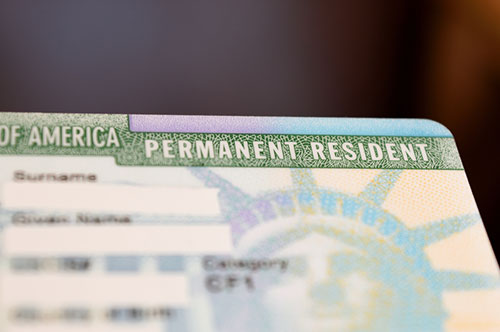International Divorce Procedures and 5 Factors to be Aware of

When a foreign national divorces a Japanese national, the divorce process may differ from that applicable to divorce between two Japanese nationals.
For foreign national and Japanese national divorce cases, it is first necessary to determine whether the laws of Japan or a foreign national country will be applicable, whether notification procedures are necessary, and how matters such as child custody and monetary support will be decided.
This article has been prepared by an attorney to provide some guidance as to divorce between a foreign national and Japanese national, and the various factors to be aware of.
Table of Contents
1: Determining which Country’s Laws will be Applicable
In foreign national and Japanese national divorce cases, it is first necessary to determine in accordance with which country’s legal system the divorce procedures must be carried out (also known as the "governing law").
In Japan, governing law matters are determined in accordance with the "Act on General Rules for Application of Laws". This legislation provides the following governing law rules:
- If the couple has same nationality, the law of that country will be applied.
- If the nationalities of the couple are different, the law of the country in which the couple habitually reside will be applied.
- If the nationalities of the couple are different, and they do not share a common habitual residence, the law of the country that is most closely connected to the couple will be applied.
- If the Japanese spouse regularly resides in Japan, the laws of Japan will be applied.
In most cases, the laws of Japan will govern divorce when the Japanese national spouse resides in Japan.
2: The Divorce Process
The divorce process and procedures for foreign national – Japanese national couples vary based on the countries involved.
-
(1) Divorcing in Japan:
As previously mentioned, if you file for divorce in Japan from a Japanese national that resides in Japan, the laws of Japan will be applicable.
Ideally, couples divorcing in Japan should file what is known as a "divorce by agreement".
If the couple are in agreement about the actual divorce itself, and the terms thereof (such as distribution of marital assets, payment of alimony, child support, custody, and so on) the process is as simple as filing the relevant notification papers at the local government offices.
If the couple cannot come to an agreement, they may file for what is known as a "divorce by conciliation" at the family court. Should these procedures fail, regular court proceedings for divorce (a "divorce by judgement") must be initiated, provided that a divorce by judgement cannot be initiated until a "divorce by conciliation" has been attempted.
-
(2) Divorcing in a Foreign Country
If the couple is living in the country of the foreign national, that country’s laws may govern the divorce.
The United States:
The costs and procedures involved in filing for divorce in the United States can vary based on the relevant state in which it is carried out. Seeking the advice of an attorney duly qualified to practice the law of the relevant U.S. state is required when contemplating divorce in the United States.China:
Marriages and divorces conducted in Japan are not recognized in China. In order for a divorce between a Chinese foreign national and Japanese national to be recognized in China, it is necessary to go to the "Marriage Registration Office of Civil Affairs" in China, and file a "divorce by agreement" or initiate court divorce proceedings (in other words, actually conducting the divorce in China).The Philippines:
As divorce is not permitted by law in the Philippines (although a different system of annulment exists), divorce between a Philippines foreign national and Japanese national must be conducted in Japan. There is no obligation to report this divorce carried out in Japan to the relevant authorities in the Philippines.The laws and procedures involved for divorce differ significantly between other countries such as Korea, Vietnam, France, Germany and Australia. In some countries, what is known as a "divorce by agreement" is not recognized, and court proceedings must be initiated in order to divorce. In such cases we recommend contacting the relevant embassy or seeking the advice of attorneys qualified to practice law in those countries.
3: Four Factors to be Aware of in Foreign National – Japanese National Divorces
Even in cases where the laws of Japan are applicable, and the divorce is carried out in Japan, there are a number of factors that should be considered by foreign national and Japanese national couples that would not otherwise be the case for a divorce between two Japanese nationals.
-
(1) Has the marriage been validly established in only one country?
It is often the case that a marriage has been validly established in one country, but not recognized as such in the country of the foreign national spouse. For example, a marriage in Japan between a Japanese national and Chinese foreign national will not be recognized in China unless the relevant domestic procedures are carried out for marriage in China. In cases such as this, as the marriage was never recognized in China, divorce in Japan would not result in any additional steps being necessary in China.
-
(2) Has the marriage been validly established both countries?
If the marriage has been validly established in both Japan and the country of the foreign national, divorce procedures may need to be carried out in both countries. There are cases where a foreign national will not be recognized as having got divorced in his or her home country despite validly divorcing in Japan. It may be necessary for the divorce to be recognized in that country if the foreign national wishes to marry again, otherwise they are at risk of engaging in bigamy. The foreign national must consider what must be done for their Japanese divorce to be recognized in their home country, if anything.
-
(3) Differences in alimony and other divorce-related payments:
Alimony systems and other payments relating to divorce vary between countries. For example, in Japan, if a spouse has engaged in adultery, that spouse and their adulterous partner can potentially be ordered to pay damages to the non-adulterous spouse. On the other hand, in almost all U.S. states, claims for such damages are no longer recognized at law. In Germany, there is no legal provision for alimony whatsoever. It is necessary for both the foreign national spouse and the Japanese national spouse to understand what rights they have, if any, when requesting alimony payments and other similar allowances under divorce law.
-
(4) Changes to immigration status after divorce:
Foreign nationals that are residing in Japan through use of a spouse visa must change their immigration status after divorce if they intend on remaining in Japan. This is because spouse visas will expire six months after divorcing from the Japanese spouse.
4: Child Custody and Support
-
(1) Which country’s law will determine custody?
A major issue for foreign national and Japanese national marriages in Japan is the non-recognition of joint custody in Japanese law. Sole custody for the child will be awarded to one parent based on the decision of the parents, and failing that, the court. Foreign nationals are at a distinct disadvantage in the determination of sole custody in Japan.
As joint custody is not recognized under Japanese law, it will only be granted when the divorce is governed by the law of the foreign national parent or another foreign country law.
The governing law for child custody matters is determined as follows:
- If the nationality of the child is the same as one of its parents, the law of that nation will be applicable.
- In other cases, the law of the nation where the child usually resides will be applicable.
In most cases, the law of the country in which the child holds nationality will be applicable. However, in special cases where the nationality of the child is different from both parents, the law of the nation where he or she usually resides will be applicable.
-
(2) How is the nationality of the child determined?
If one parent is a Japanese national, the child is eligible to receive Japanese nationality or citizenship. In order to do so, a birth notification must be filed with the relevant government office within 3 months of the birth of the child. If the child is born in a country that recognizes the principle of birthright citizenship, or the child has obtained the citizenship of another country by other means, the child may initially hold dual nationality. However, there is limited recognition of dual nationality in Japan. When a child is born in a foreign country, the parents are able to submit what is known as a "reservation of Japanese nationality" with the relevant government office in Japan, which allows the child to retain dual nationality until he or she is twenty-two years old. After that point, the child must choose which of the two nationalities they will maintain.
-
(3) Child Support
In cases where one spouse intends on departing Japan permanently after divorcing, it is important to consider child support obligations, as it can be difficult to agree on these matters and organize payments after departing the country. The couple should determine how payment is to be made, and whether other options such as payment of a lump sum prior to departing the country would be appropriate.
In addition, Japan became a party to the Hague Convention on the Civil Aspects of International Child Abduction in 2014, which prohibits parental child abduction. In the case that the Japanese national parent has abducted the child into Japan, the foreign national parent will have some level of legal recourse. As the Hague Convention in Japan is a particularly contentious issue, it is recommended that foreign national parents obtain the advice of a Japanese lawyer so as to better understand what rights they may have in relation to their children.
5: Concluding Remarks
Marriage and divorce between a foreign national and Japanese national differ in many respects when compared to that of two Japanese nationals. The governing law for divorce and child custody must be considered for international marriage, as must differences in alimony systems, the logistics of child support payment, changes to immigration status after divorce and so on. At Verybest our attorneys are highly experienced and skilled in international marriage and divorce matters and are ready to provide further explanation of the matters introduced in this article.





